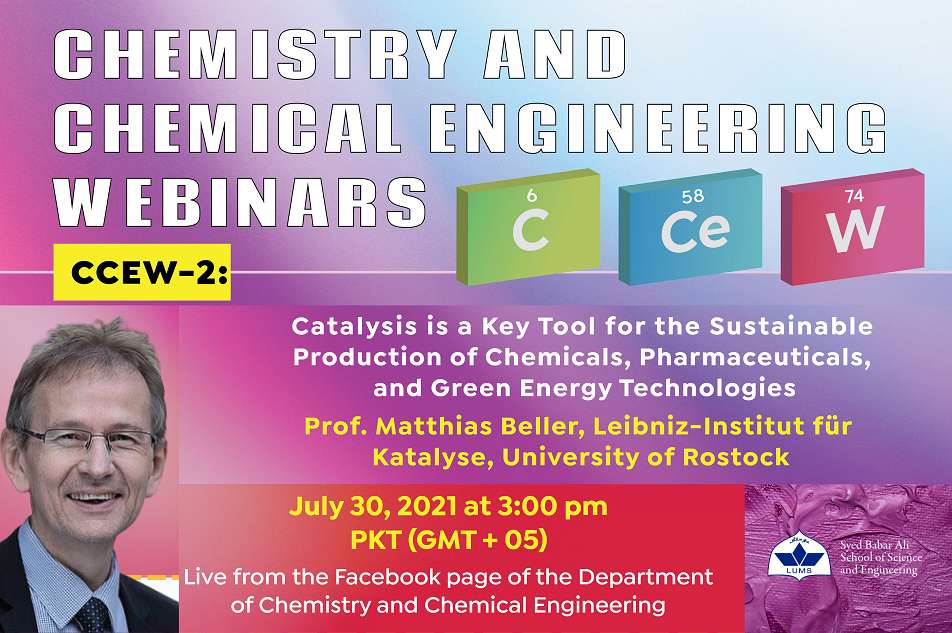
CCEW-2: Catalysis is a Key Tool for the Sustainable Production of Chemicals, Pharmaceuticals, and Green Energy Technologies
The cost-effective and waste-free synthesis of materials, life science goods, and all kinds of organic products require efficient chemical transformations. In this regard, the development of more active and selective catalysts constitutes a key factor for achieving improved processes and providing a sustainable chemical industry and society. Despite continuous advancements in all areas of catalysis, organic syntheses and the industrial production of most chemicals can be improved significantly in terms of sustainability and efficiency. The talk will show how new and improved homogeneous and heterogeneous catalysts can be developed by learning from each other. Specifically, the phenomenon of cooperative catalysis will be addressed in the context of non-noble metal-based catalysts. In detail, it will be demonstrated that recently developed molecular-defined and nanostructured cobalt and iron catalysts enable catalytic (de)hydrogenation processes with high yields and unprecedented selectivity. Examples that demonstrate the potential of such catalytic processes with bio-relevant metal complexes compared to more traditional catalytic reactions will also include reactions for energy technologies.
About the speaker:
Prof. Matthias Beller is one of the world’s leading professionals in the field of catalysis. He is the Scientific Director and Head of the Department of Applied Homogeneous Catalysis at Leibniz Institute of Catalysis, University of Rostock, Germany. He completed his PhD with a distinction from the Institute of Organic Chemistry at the University of Gottingen. After that, he spent some time with Prof. Sharpless at the Massachusetts of Technology. Prof. Beller spent some time in the industry, after which he joined the Technical University of Munich as an associate professor in 1996. Since 1998, he is a professor of catalysis at Leibniz Institute of Catalysis.
The research work of Prof. Beller centers on one of the key technologies of the new millennium: catalysis. Catalysts accelerate chemical reactions and reduce the amount of energy required for production. They are indispensable helpers and bring together, which in part would never connect without them. His group’s work has been published in more than 800 original publications and reviews, and more than 90 patent applications have been filed in the past decade.
Prof. Beller has received several awards, including the Otto-Roelen Medal and the Leibniz-Price of the DFG. In 2006, he was also awarded “Entrepreneur of the Year” of Rostock, and he received the German Federal Cross of Merit. Since then, he has received the first “European Prize for Sustainable Chemistry,” the “Paul N. Rylander Award” of the Organic Reaction Catalysis Society (Richland, WA) the Gay-Lussac-Alexander-von-Humboldt-Prize of the French Academy of Sciences, and the Emil Fischer Medal of the German Chemical Society. In 2015, he was awarded an honorary doctoral degree from the University of Antwerp, Belgium, and received the Wöhler price for Sustainable Chemistry from the German Chemical Society and an ERC grant from the European Commission. In March 2016, he received an honorary doctorate from the University of Rennes 1. Prof. Beller is also Vice President of the Leibniz Society, one of the major science organizations in Germany, and a member of the German National Academy of Science “Leopoldina” and three other science academies.

